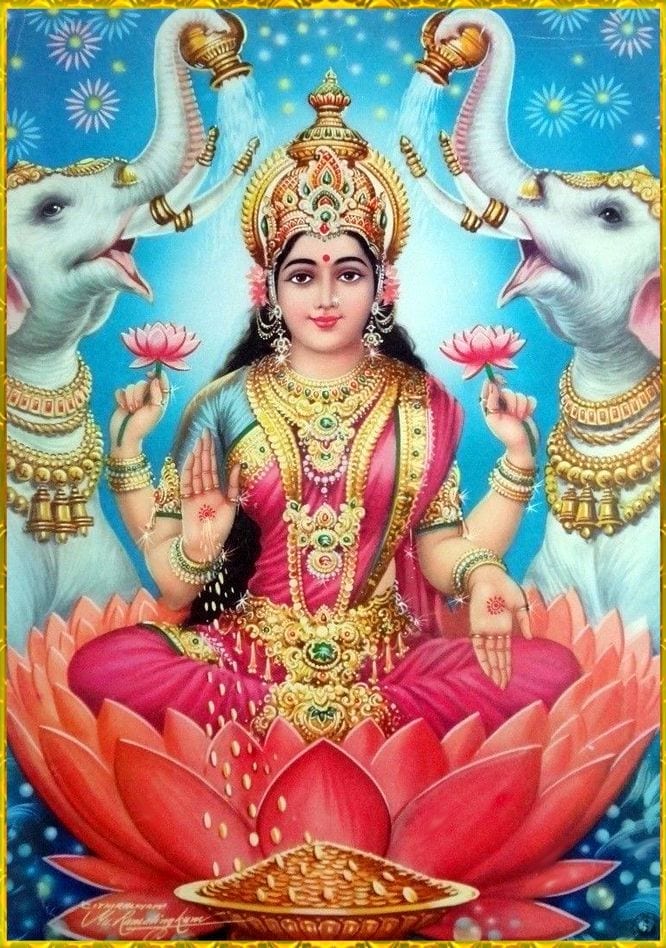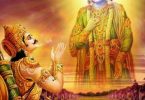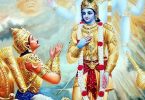Question:
Is it true that Lakṣmī appeared as the daughter of Bhṛgu? I am aware only of her appearing from the churning of the milk ocean (SB 8.8.8) “Then there appeared the goddess of fortune, Ramā, who is absolutely dedicated to being enjoyed by the Supreme Personality of Godhead. She appeared like electricity, surpassing the lightning that might illuminate a marble mountain.”
Answer by Romapada Swami:
Sometimes, an expansion of Lakṣmī appears as the daughter of Bhṛgu, as indicated in the references below. The Garga-samhitā reference is from Chapter 19, entitled “Śrī Yamunā-sahasra-nāma-kathana” A Thousand Names of Śrī Yamunā.
Padma Purāna, Chapter 4, The Birth of Lakṣmī
Bhiṣma said:
- I have heard that Lakṣmī was born in the white ocean. How did you say that she was born of Khyāti from Bhṛgu? [etc.]
CB Madhya 14.42 purport
Bhṛgu, according to the Viṣṇu Purāna, was born from the mind of Brahmā and is one of the ten Prajāpatis. He was married to Khyāti, the daughter of Dakṣa. Lakṣmī, the wife of Viṣṇu, and the two sons, Dhātā and Vidhātā, were born from the womb of Khyāti.
Bṛhad-bhāgavatāmṛta 1.3.66
yā vihāyādareṇāpi
bhajamānān bhavādṛśān
vavre tapobhir ārādhya
nirapekṣaṁ ca taṁ priyam
yā — who; vihāya — leaving aside; ādareṇa — with great respect; api — even; bhajamānān — who are worshiping; bhavādṛśān — persons like you (Nārada); vavre — she chose; tapobhiḥ — by severe penances; ārādhya — worshiping; nirapekṣam — who was indifferent; ca — and; tam — Him; priyam — her beloved.
“Ignoring people like you who worship her with great respect, she vowed to undergo severe penances to worship her beloved Lord, even though He was indifferent to her.”
Now, the greatness of Lakṣmī’s worship of the Lord with the highest prema, with disregard for all else, is described. The Lord is described as indifferent (nirapekṣam) since he is ātmārāma and full in his desires. The cause of accepting her is her affection for him (priyam). This means that she was dedicated only to him. How did she gain the Lord who is ātmārāma? She worshipped the Lord with austerities or various services, while completely concentrating on him (tapobhiḥ). Plural is used in tapobhiḥ to indicate respect. It is said in the Tenth Canto:
kasyānubhāvo ’sya na devam vidmahe
tavāṅghri-reṇu-sparaśādhikāraḥ
yad-vāñchayā śrīr lalanācarat tapo
vihāya kāmān su-ciraṁ dhṛta-vratā
“O Lord, we do not know how the serpent Kāliya has attained this great opportunity of being touched by the dust of your lotus feet. For this end, the goddess of fortune performed austerities for centuries, giving up all other desires and taking austere vows.” SB 10.16.36
Though Lakṣmī is the eternal consort of the Lord of Vaikuṇṭha, and does not need to attain him by worship like others, her expansions like the daughter of Bhṛgu (Bhargavī) are described in scriptures as performing penances to attain the Lord. These forms are considered non-different from Lakṣmī in verses like the one quoted above.
BB 1.3.66 purport
“The supreme goddess Mahā-Lakṣmī is the eternal beloved of the Lord of Vaikuṇṭha; she does not have to worship Him to achieve Him. But her expansions descend as avatāras to accompany the various incarnations of Nārāyana, and some of these avatāras of Mahā-Lakṣmī, such as the daughter of Bhṛgu Muni, are described in Vedic scriptures as performing penances to obtain the Lord as their husband.
BB 2.2.36 purport
“Bhṛgu is a great Vaiṣṇava and sometimes the father of the goddess Lakṣmī.”
Garga-samhita 4.19.116
laksmi ramā ramaniyā
bhārgavi visnu-vallabhā
sitārcir jānaki mātā
kalagka-rahitā kalā
. . . is glorious (laksmi), delightful (ramā), beautiful (ramaniyā), is a friend of Bhṛgu Muni’s daughter (bhārgavi), is dear to Lord Visnu (visnu-vallabhā), is a friend of Sitā (sitā and jānaki), is glorious as a flame (arci), is like the mother of the world (mātā), is sublimely pure (kalagka-rahitā), is a kalā expansion of Lord Krsna (kalā), . . .







